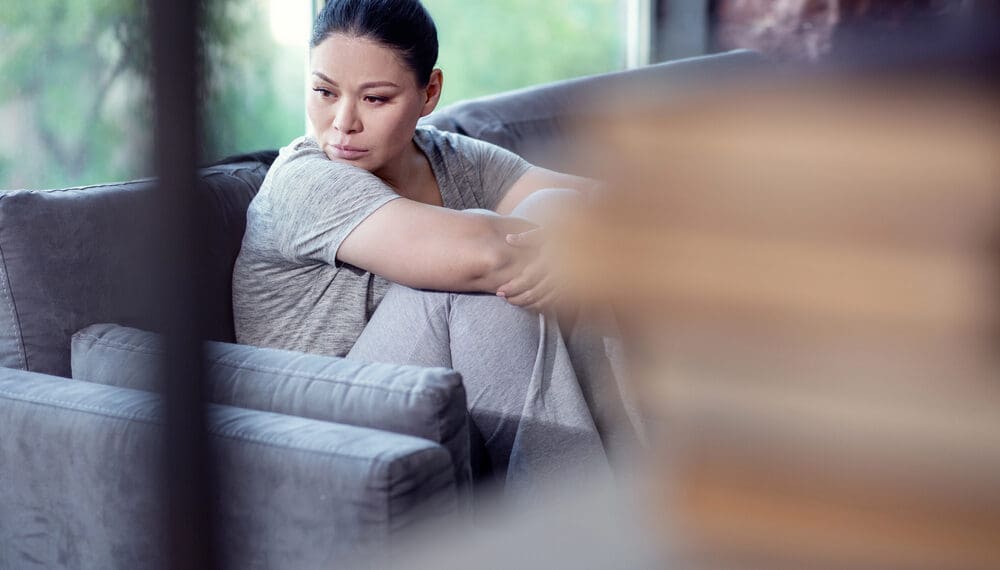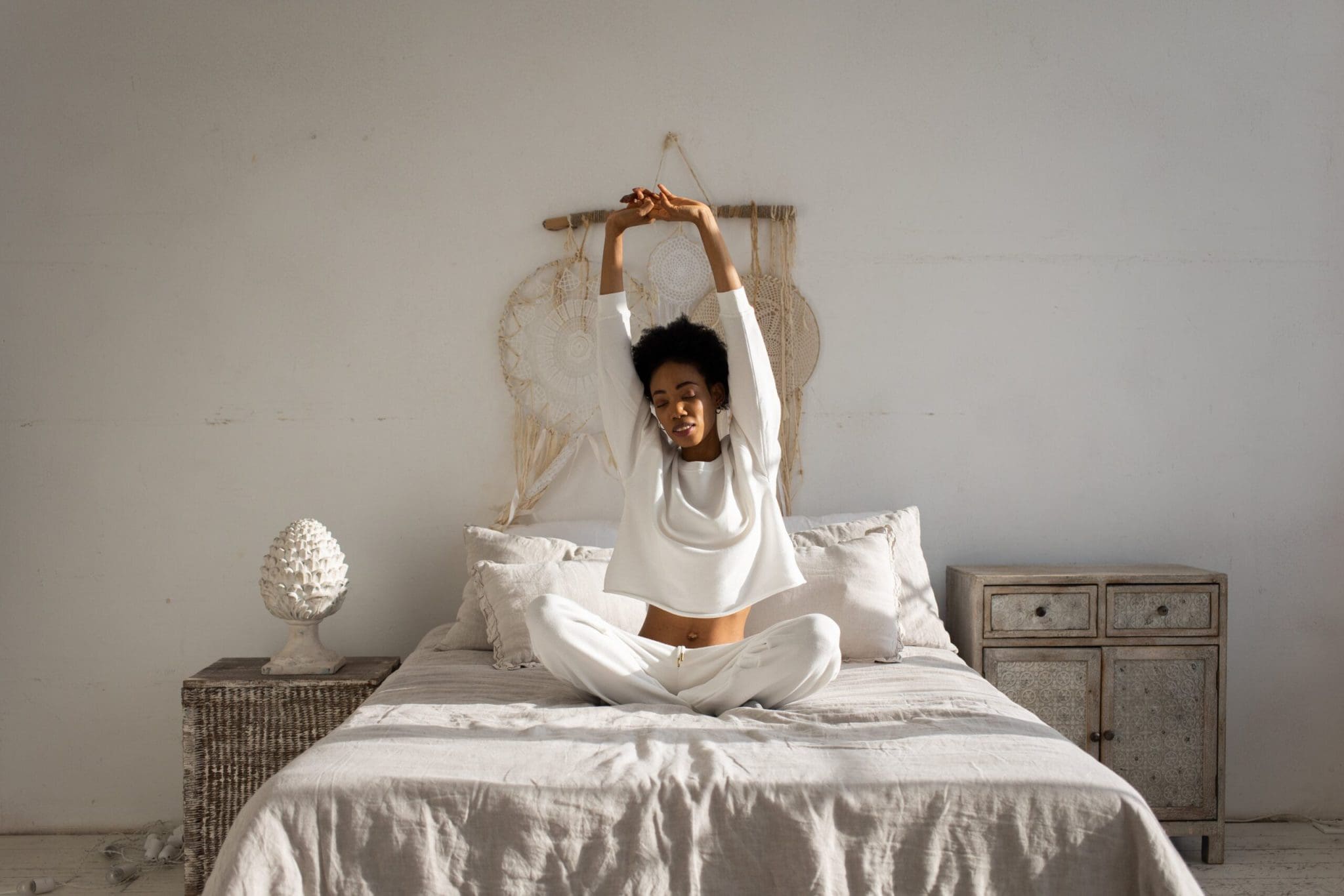Full Disclosure: Clicking on these links could mean a tiny commission for me, at no extra cost to you.
Managing depression and substance use disorder at the same time can feel like trying to swim upstream. One minute you’re fighting to stay afloat emotionally, and the next, you’re battling currents (or cravings) and there’s no life raft around. Living with more than one diagnosis can be awfully overwhelming, but it doesn’t have to always be this way. Whether you’re struggling with a new diagnosis or are curious about learning helpful coping strategies for managing your mental health, you’ve come to the right place.
The Double Trouble Link Between Depression and Substance Use
Depression and substance use disorder are often tangled together in ways that can be hard to unravel. For many, one doesn’t exist without the other and that’s no coincidence. Research shows that people living with depression are more likely to use substances like alcohol, cannabis, or prescription medications to self-medicate. It’s an attempt to dull the emotional pain, numb the sadness, or simply feel something different, even if only for a moment.
But here’s where it gets complicated: while that drink or hit might offer temporary relief, it often deepens the depressive symptoms over time. Alcohol, for example, is a depressant and it can actually lower mood and disrupt sleep. Certain substances may even change brain chemistry in ways that make existing mental health conditions worse.
That’s also why it’s so important to treat both issues together. A growing number of mental health providers, including those offering holistic addiction therapy in New Jersey, are recognizing this connection and taking a whole-person approach to healing. These programs focus on supporting your mental health, uncovering emotional triggers and adding calming tools like mindfulness, therapy, anxiety fidget rings, exercise and nutrition to support recovery from all angles.
Here are some key things to remember:
-
Self-Medication: Alcohol is a sedative, and for many struggling with depression, it can feel like a quick escape from emotional pain. It may temporarily numb feelings or quiet the mind but it’s far from a healthy coping strategy. In fact, alcohol disrupts the brain’s natural chemistry, making it a poor long-term solution for managing depression.
-
Alcohol’s Effect on the Brain: Over time, heavy or compulsive drinking can actually change how the brain functions. This can distort mood regulation and trigger, or worsen, symptoms of depression, making recovery even more challenging.
-
The Vicious Cycle: Depression and alcohol use often feed into one another in a loop that’s tough to break. A person may drink to ease emotional distress, only to feel even more hopeless, ashamed, or guilty afterward. These heavy emotions can then fuel even more drinking, deepening the depression and reinforcing the cycle.
Advertisement
Ready to Take Control and Start Healing?
Feeling anxious, stuck, or overwhelmed? You don't have to figure it out by yourself. BetterHelp connects you with a licensed therapist who fits your needs, all from the comfort of home.
No waitlists, no commuting, no pressure. Just flexible, professional support designed for real life. With over 20,000+ therapists available and plans starting at $65/week, you can start making progress today — one step at a time.
What is Depression?
Depression is one of the most common, and most misunderstood, mental health conditions in the world. It’s so much more than your occasional sadness, often reshaping how you think, feel, and function. It’s a persistent, often invisible weight that impacts all kinds of aspects of your life, including your relationships, daily routines, sleep patterns, eating habits—you name it.
While depression takes many forms, one of the most severe is Major Depressive Disorder (MDD), which involves intense, long-lasting symptoms like overwhelming sadness, loss of interest in once-loved activities, low energy, difficulty concentrating, and disruptions to sleep and appetite. In some cases, depression may also lead to thoughts of death or suicide.
There’s also situational and seasonal depression, while often less intense, still deeply affect quality of life and your overall emotional health. Bleh.
What’s crucial to understand is that depression is not a personal failure or a lack of willpower. It’s a real health condition, and like any health issue, it deserves proper care. Treatment can range from therapy and medication to more natural approaches like crystals for healing, mental health products, fidget jewelry, and other calming tools that support nervous system regulation and emotional grounding.
The Different Types of Depression
Just like anxiety, depression doesn’t look the same for everyone. It’s a spectrum of experiences and understanding the specific type you’re dealing with can make all the difference in getting the right support. Whether it’s rooted in life events, brain chemistry or seasonal changes, here are the most common types of depression that mental health professionals recognize:
1. Major Depressive Disorder (MDD)
Often referred to as “clinical depression” MDD is characterized by intense symptoms that last at least two weeks and interfere with daily life. This includes persistent sadness, fatigue, lack of motivation, changes in sleep and appetite, and sometimes, suicidal thoughts. It often requires a combination of therapy, medication, and lifestyle changes.
2. Persistent Depressive Disorder (PDD)
PDD is a long-term form of depression that lingers for two years or more. The symptoms may be milder than MDD but the chronic nature of it can wear you down over time. People with PDD may appear “functional” but still feel numb, hopeless, or joyless inside.
3. Postpartum Depression
With the intense rush of hormones and all the changes that come with having a newborn, it’s not always sunshine and rainbows for all moms. Postpartum depression affects many new mothers and can present itself in symptoms like overwhelming sadness, anxiety, exhaustion and difficulty bonding with their baby. It’s a serious condition that needs a compassionate, timely treatment and understanding.
4. Seasonal Affective Disorder (SAD)
SAD is depression that’s triggered by seasonal changes. It occurs most often during fall and winter when sunlight is limited, amongst many other chilly causes of seasonal affective disorder. It can bring on symptoms similar to MDD, including fatigue, low mood and social withdrawal. Light therapy, vitamin D are helpful mental health for getting through the seasonal blues.
5. Premenstrual Dysphoric Disorder (PMDD)
PMDD is a severe form of PMS that occurs in the luteal phase of the menstrual cycle. Symptoms include extreme mood swings, irritability, anxiety, and depression that impact daily functioning. It’s often misunderstood or dismissed, but it’s very real and very treatable.
6. Atypical Depression
This form of depression includes symptoms like increased appetite, excessive sleep, and mood reactivity (feeling better temporarily in response to positive events). Despite the name, it’s not uncommon—and can be particularly tricky to diagnose because it doesn’t fit the “classic” depressive mould.
7. Situational Depression
Just as the name suggests, situational depression is triggered by life events like grief, divorce or trauma. It is short-term but very much so real and worthy of support.
Depression Treatment Options: What Works for Co-Occurring Disorders
When depression and substance use disorder show up together, which they often do, it’s called a co-occurring disorder or dual diagnosis. Treating both conditions at once is crucial and there are many different kinds of evidence-based and holistic options that make this possible.
Treatment plans are curated based on the severity of each disorder. For someone experiencing mild to moderate depression alongside substance use, options like Cognitive Behavioural Therapy (CBT) and mindfulness practices can be effective but in more severe cases, especially when addiction has become life-disrupting, a deeper, multi-layered approach is needed.
1. Medically Supervised Detox
Detox is often the first step in recovery from substance use. It safely clears the body of alcohol or drugs, allowing individuals to begin their healing without the fog of withdrawal. Detox programs vary depending on the type of substance, how long it’s been used, and the person’s overall health.
But it’s important to remember: detox only addresses the physical dependency. It’s not a cure for addiction and attempting to detox alone can be dangerous. Symptoms like seizures, high blood pressure, or even cardiac events can occur. That’s why it’s essential to undergo detox under professional medical supervision.
2. Behavioural Therapies
After detox, the emotional and psychological roots of addiction and depression must be addressed. Cognitive Behavioural Therapy (CBT), motivational interviewing, and contingency management are powerful tools used to help reframe harmful thoughts, build healthy coping skills, and strengthen motivation for recovery. These therapies help untangle the negative thought loops that fuel both substance use and depression, offering practical, day-to-day tools for healing.
3. Medication-Assisted Treatment (MAT)
For those who need additional support, Medication-Assisted Treatment (MAT) can be life-changing. Medications like naltrexone, acamprosate, and disulfiram are commonly used to reduce cravings and support long-term sobriety, especially when alcohol is involved.
At the same time, antidepressants such as SSRIs or SNRIs may be prescribed to help balance mood and alleviate symptoms of depression. A licensed professional can help decide the safest and most effective combination.
Fast, Affordable Therapy and Medication
Medication and therapy work better together — and Hims/Hers make getting support simple. Connect with licensed providers online, receive personalized treatment plans, and access medication — all from the comfort of home. No long waits, no stress — just expert care made easy.
4. Family and Couples Therapy
Depression and substance use rarely affect just one person, often impacting the entire family. That’s why involving loved ones in therapy can be incredibly healing. Family and couples therapy works to repair trust, strengthen communication and create a more supportive environment for lasting recovery.
When your support system is solid, your recovery is even stronger.
5. Holistic Approaches
Healing often involves some sort of holistic addiction therapy that nurtures the entire soul. This can includes addressing everything from mindfulness, nutrition and movement to spiritual practices and trauma-informed counseling. Centres like New Chapter Faith Recovery in New Jersey offer holistic addiction therapy in New Jersey that combines evidence-based treatments with faith-based support. Their integrated approach is especially beneficial for those dealing with dual diagnoses, offering both structure and soul-level healing.
Recovery Is On Your Bingo Card
Recovering from depression and substance use disorder certainly won’t be an easy challenge but it is possible with the right tools, treatment and support. Whether it starts with a detox program, weekly therapy or small lifestyle changes, every step forward is a victory. You’re not alone in this journey, and with the right care, a brighter, healthier future is absolutely within reach.
Additional Resources
At Anxiety Gone, we believe in healing together. We’ve partnered with trusted wellness organizations to bring you the most effective tools, insights, and support. Some links may earn us a commission — always at no extra cost to you.
Join The Club
Connect with our private self-care community for daily support, exclusive tips, and inspiration. Join us today
Talk Therapy
Get matched with licensed therapists online through BetterHelp and begin your healing today. Start now
Hims/Hers
Receive personalized, affordable mental health care + medication from home — no insurance required. Learn more
Mental Health, Right to your Inbox
Subscribe to our newsletter for a place to rest your mental health and find ways to support your journey. Sign up
Emotional Freedom Technique
Tap your way to calm with scientifically backed stress relief. Our readers receive a 14-day free trial! Try EFT now
Mindfulness App
Access 2,000+ guided practices to support your mental health wherever you are + exclusive discount when you upgrade Try it
Online Breathwork
Experience calm and reset your nervous system with guided sessions and receive your first month free . Get started
Find a Helpline
If you need immediate support, visit our directory to find help near you. See helplines










Discussion about this post